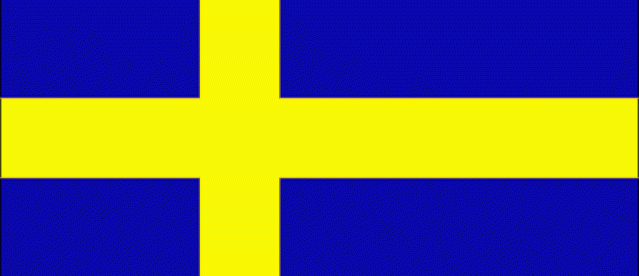Why You Can’t Name Your Kid “Albin” (With a Different Spelling)

Brfxxccxxmnpcccclllmmnprxvclmnckssqlbb11116.
No, a small animal did not run across the keyboard. Nor did I drop the computer, spill coffee, nor pass out while typing. In fact, that’s a copy/paste, lest I misspell the name of a Swedish person who, by now, is about 24 years old.
Well, kind of. It’s not his name. That wouldn’t be allowed.
Brfxxccxxmnpcccclllmmnprxvclmnckssqlbb11116 — it’s pronounced “Albin” — was born in 1991 to parents in the small town of Varberg, Sweden. It caused a problem because, in 1982, Sweden enacted what a “Naming Law” which regulates what first names are acceptable for children born within its borders. The law states, in part (and translated into English): “First names shall not be approved if they can cause offense or can be supposed to cause discomfort for the one using it, or names which for some obvious reason are not suitable as a first name.” According to Wikipedia, the law was originally intended to prevent commoners from taking the names of nobility, but it also ensnares other names as well. B-11116, let’s spell it, was one of the more notable examples — and one of the more flagrant violations of the Naming Law.
B-11116’s parents weren’t just weird, though. They choose the long, unpronounceable string (if you don’t know that it’s pronounced “Albin, that is) for their son because of the Naming Law. They weren’t fans of the regulation and their son’s name was an attempt at protesting against it, according to the BBC. But the protest didn’t go all that well. Five years after little B-11116 was born, his parents were fined for not giving him an acceptable name. The parents appealed and lost, and when they tried to change his name to simply “A,” they were rejected once more — the law apparently does not allow for one-character names, either. The fate of B-11116’s name today is unknown.
But he isn’t alone in this world — many other children in many different countries have battled with unacceptable names. Per CNN, New Zealand prohibits names such as “Christ,” “Messiah,” and to be fair to both sides, “Lucifer” as well. Iceland requires that given names reflect the person’s gender, which led to litigation as recently as 2013. Earlier this year, a French court rejected a family’s attempt to name their daughter “Nutella,” finding that it would not be in the best interest of the child to be named after a delicious hazelnut spread. And in recent years, China has started to require that some citizens change their names if they want government-issued ID cards — newer cards need to be machine-renderable, and per the New York Times, the ID card systems were not programmed to handle all 52,000 or so available characters.
And then there’s the United States. Creativity is welcome — for example, there’s a college football player named Gelo Orange — but, for better or for worse, so is hate. A neo-Nazi in New Jersey named his children after Adolf Hitler, Eva Braun, and others of similar infamy. The courts didn’t change the children’s names — there are First Amendment concerns with that. But the courts didn’t just sit idly by. Acting with the State Division of Youth and Family Services, took custody of the children — although the state alleges that a history of abuse, and not the children’s names, was the reason why.
 Bonus Fact: As names go, Brfxxccxxmnpcccclllmmnprxvclmnckssqlbb11116 isn’t all that long, even if borders on the ridiculous. It’s hard to say who has the longest name in history, but a Philadelphia-area typesetter from the early 1900s chose a very long name for himself. Known, among other things, as Hubert Blaine Wolfe+590, Sr., his name has been published in many different forms since. One of the “longest and most reliable” versions, per Wikipedia, was “Adolph Blaine Charles David Earl Frederick Gerald Hubert Irvin John Kenneth Lloyd Martin Nero Oliver Paul Quincy Randolph Sherman Thomas Uncas Victor William Xerxes Yancy Zeus Wolfeschlegelsteinhausenbergerdorffwelchevoralternwarengewissenhaftschaferswessenschafewarenwohlgepflegeundsorgfaltigkeitbeschutzenvorangreifendurchihrraubgierigfeindewelchevoralternzwolfhunderttausendjahresvorandieerscheinenvonderersteerdemenschderraumschiffgenachtmittungsteinundsiebeniridiumelektrischmotorsgebrauchlichtalsseinursprungvonkraftgestartseinlangefahrthinzwischensternartigraumaufdersuchennachbarschaftdersternwelchegehabtbewohnbarplanetenkreisedrehensichundwohinderneuerassevonverstandigmenschlichkeitkonntefortpflanzenundsicherfreuenanlebenslanglichfreudeundruhemitnichteinfurchtvorangreifenvorandererintelligentgeschopfsvonhinzwischensternartigraum, Senior.” It’s probably not pronounced “Albin.”
Bonus Fact: As names go, Brfxxccxxmnpcccclllmmnprxvclmnckssqlbb11116 isn’t all that long, even if borders on the ridiculous. It’s hard to say who has the longest name in history, but a Philadelphia-area typesetter from the early 1900s chose a very long name for himself. Known, among other things, as Hubert Blaine Wolfe+590, Sr., his name has been published in many different forms since. One of the “longest and most reliable” versions, per Wikipedia, was “Adolph Blaine Charles David Earl Frederick Gerald Hubert Irvin John Kenneth Lloyd Martin Nero Oliver Paul Quincy Randolph Sherman Thomas Uncas Victor William Xerxes Yancy Zeus Wolfeschlegelsteinhausenbergerdorffwelchevoralternwarengewissenhaftschaferswessenschafewarenwohlgepflegeundsorgfaltigkeitbeschutzenvorangreifendurchihrraubgierigfeindewelchevoralternzwolfhunderttausendjahresvorandieerscheinenvonderersteerdemenschderraumschiffgenachtmittungsteinundsiebeniridiumelektrischmotorsgebrauchlichtalsseinursprungvonkraftgestartseinlangefahrthinzwischensternartigraumaufdersuchennachbarschaftdersternwelchegehabtbewohnbarplanetenkreisedrehensichundwohinderneuerassevonverstandigmenschlichkeitkonntefortpflanzenundsicherfreuenanlebenslanglichfreudeundruhemitnichteinfurchtvorangreifenvorandererintelligentgeschopfsvonhinzwischensternartigraum, Senior.” It’s probably not pronounced “Albin.”
From the Archives: Wayan Balik: How people in Bali get their names.
Take the Quiz: It’s barely related — to say the least — but: what are these weird websites about?
Related: “The Baby Name Wizard, Revised 3rd Edition: A Magical Method for Finding the Perfect Name for Your Baby.” 4.4 stars on 101 reviews.
